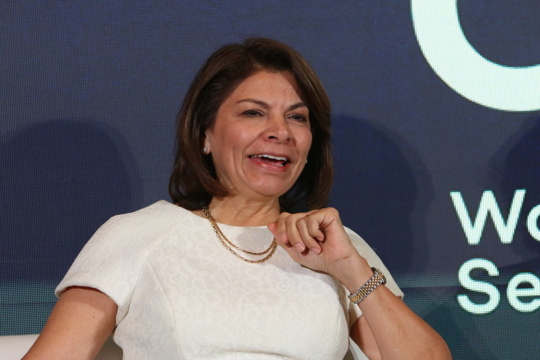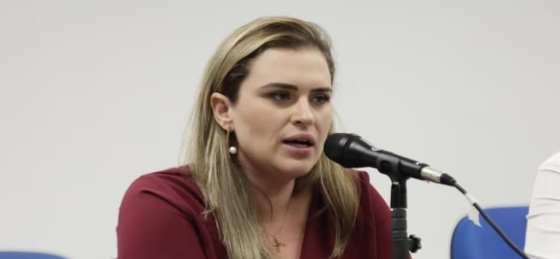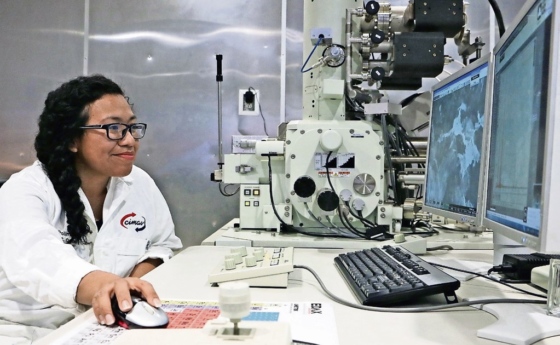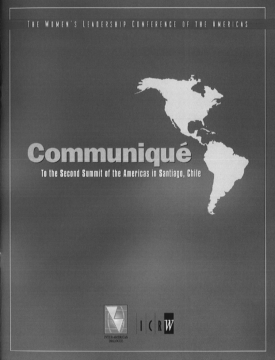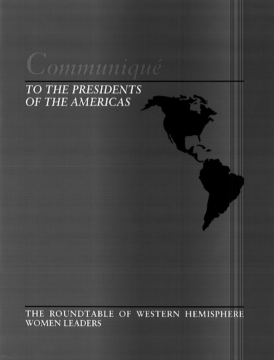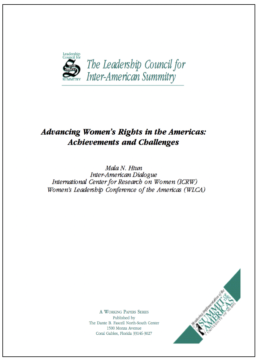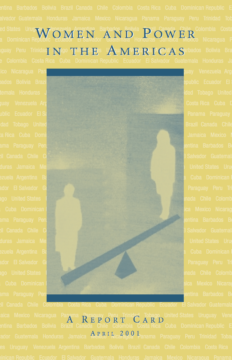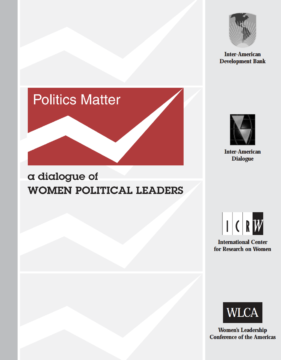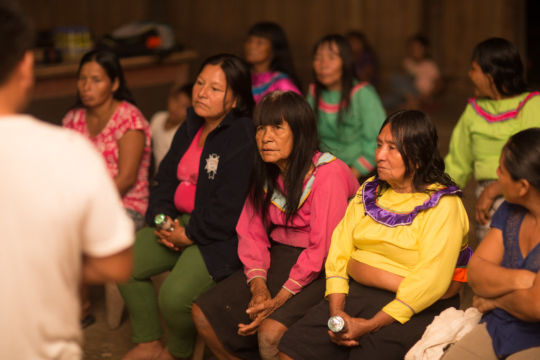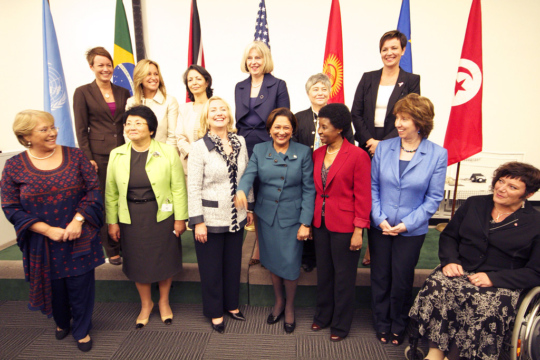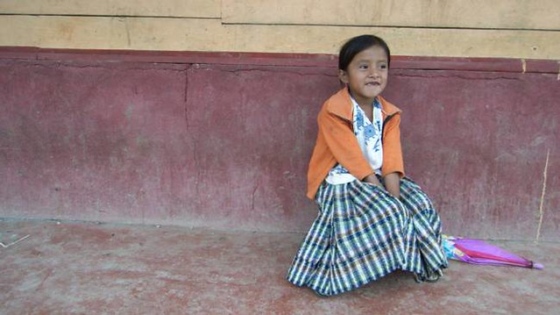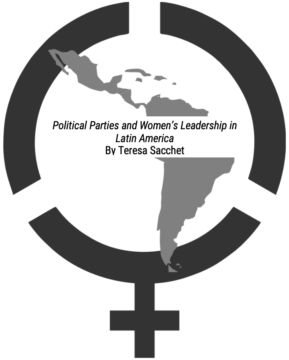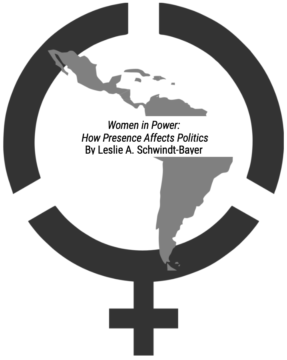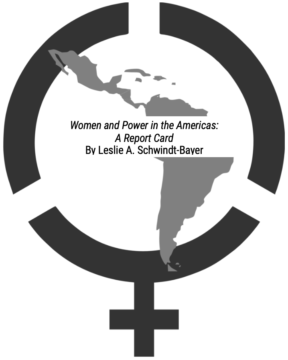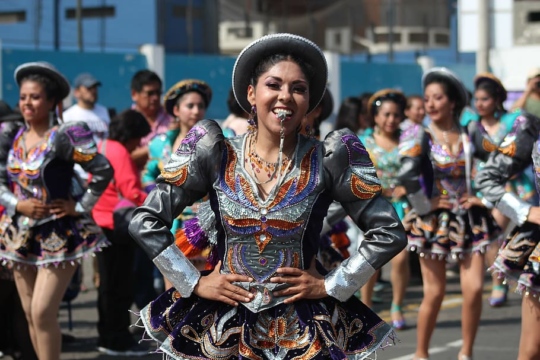
Women still playing catch up
Women in Latin America have come a long way but aren’t there yet. The legacy of Iberian colonialism, male-centered Catholicism and an undemocratic past all contributed to societies that subjugated women to men.
Women in Latin America have come a long way but aren’t there yet. The legacy of Iberian colonialism, male-centered Catholicism and an undemocratic past all contributed to societies that subjugated women to men.
Laura Chinchilla, former president of Costa Rica, is the recipient of the 2020 Women Political Leaders (WPL) Trailblazer Award. This award is presented to incumbent and former presidents and prime ministers for breaking political glass ceilings and reaching the highest echelon of political leadership.
A Latin America Advisor Q&A featuring experts’ viewpoints on the progress and challenges of gender representation in Brazilian politics.
A Latin America Advisor Q&A featuring experts’ viewpoints on the gender gap in Latin America.
The Women’s Leadership Conference of the Americas (WLCA) is a hemispheric network of 100 outstanding women leaders who have decided to work together to: (1) expand the number and enhance the contribution of women in top leadership positions across Latin America and the Caribbean; (2) promote policy and institutional changes that will improve opportunities for all women in the region; and (3) strengthen other nongovernmental initiatives that advance women’s equality, and facilitate their access to policy officials.
On October 7, 1994 in Washington, D.C., the Roundtable of Western Hemisphere Women Leaders brought together a politically and professionally diverse group of over thirty prominent women—none of whom occupy a national government position—from the United States, Canada and eleven countries of Latin America and the Caribbean.
This paper highlights the achievements and the failures of American governments in implementing Summit provisions related to women’s rights in the areas of violence, health, political participation, legal rights, and the maintenance of women’s agencies in the state.
The Women’s Leadership Conference of the Americas (WLCA)—a joint initiative of the Inter-American Dialogue and the International Center for Research on Women (ICRW)—is pleased to present this report on women in political power in the hemisphere. The WLCA believes that the number of women in political leadership is a concrete indicator of a country’s progress (or lack thereof) toward fulfilling its commitment to women’s equity. The WLCA is releasing this report prior to the third Summit of the Americas––taking place in Quebec City, Canada, on April 20 to 22, 2001––as part of its continuing efforts to monitor progress on promises made to women.
The Inter-American Development Bank (IDB) and the Women’s Leadership Conference of the Americas (WLCA)—a joint initiative of the Inter-American Dialogue and the International Center for Research on Women (ICRW)—are pleased to present this report on the discussions regarding women’s leadership that occurred at the meeting, “Politics Matter: A Dialogue of Women Political Leaders,” held on November 13, 2000 at IDB headquarters in Washington, DC. We are particularly grateful to the fifty top women politicians from throughout the hemisphere whose thoughtful participation made this forum a success.
Within the changing landscape of migration where both men and women are moving across borders, remittance transfers also follow gendered lines. These dynamics are the differences in sex and social practices that signify the presence of prevailing relationships in the broader context of contemporary transnational migration (Ramirez 2005).
Women form more than half the population, but constitute only a small minority of all political representatives. According to the most recent figures, they occupy 17 percent of all seats in national parliaments around the world (Inter-Parliamentary Union 2007b). However, attention to global averages masks important variations.
Education remains the best means to address persistent income inequality based on gender and race in Latin America, argued Hugo Ñopo.
Increasing women’s presence in political decision-making positions has been advocated by development organisms, activists and academics as a means to strengthen democracy and to make policy-making processes more representative of wider sections of the population.
The number of women represented in political leadership in the Americas has increased dramatically over the past thirty years. In 2006, Chile elected its first female president, Michelle Bachelet, and Jamaica its first female prime minister, Portia Simpson-Miller.
In 1975, female politicians and women’s groups from around the world met in Mexico City for the UN’s First World Conference on Women. They discussed the plight of women, from their absence in politics to the unique social and economic problems women face, and devised a set of recommendations for improving women’s status.
